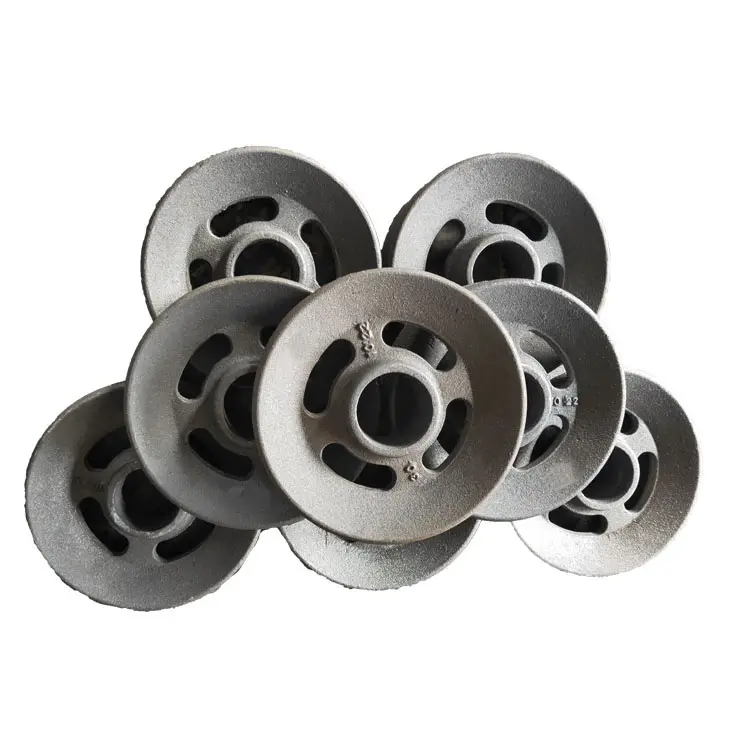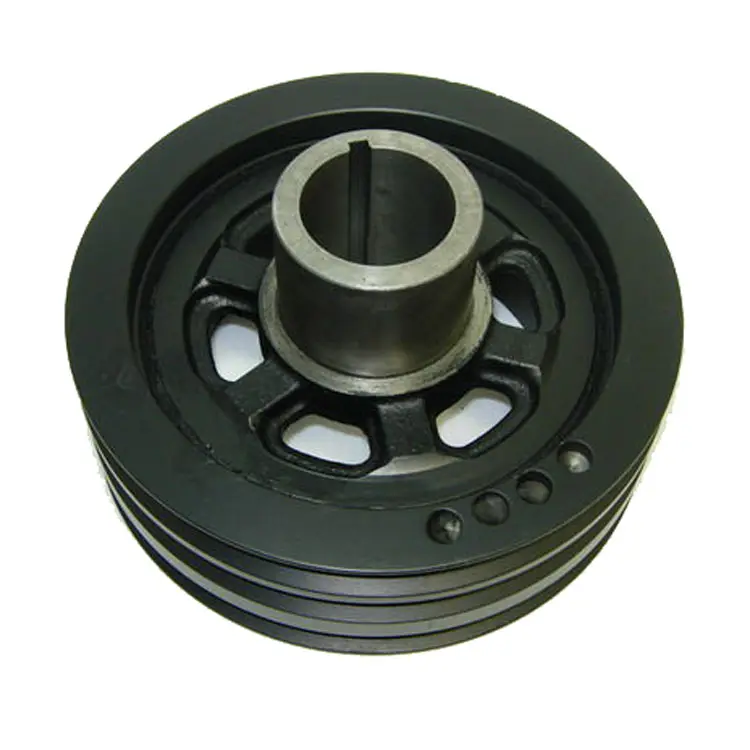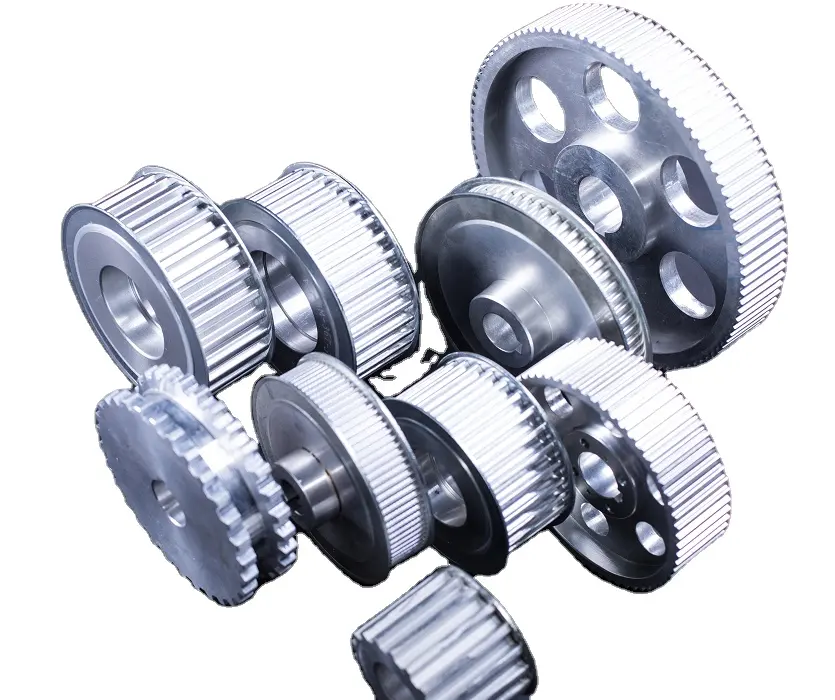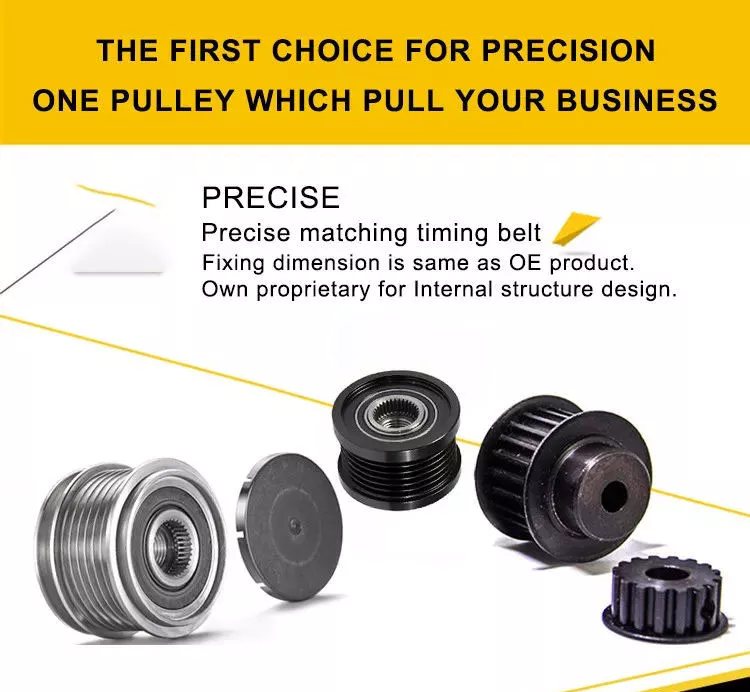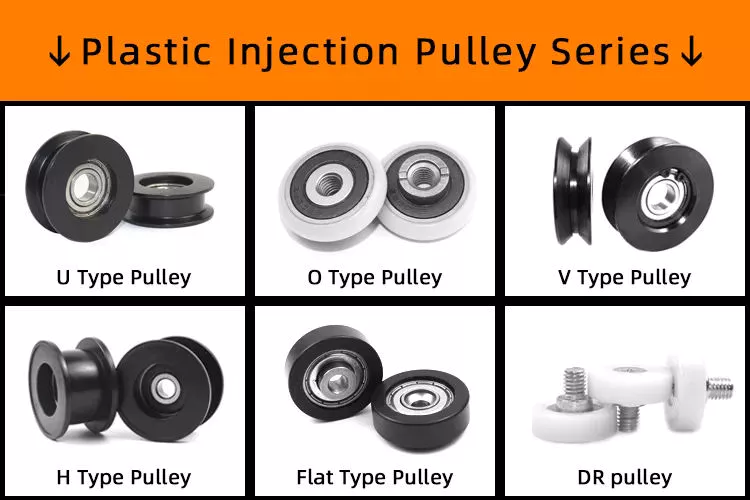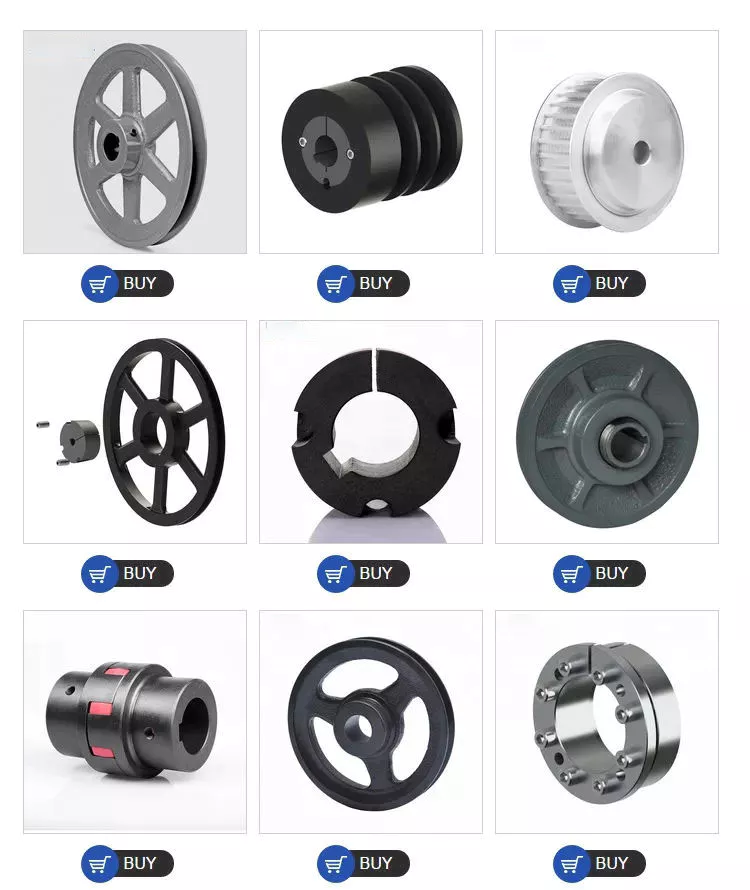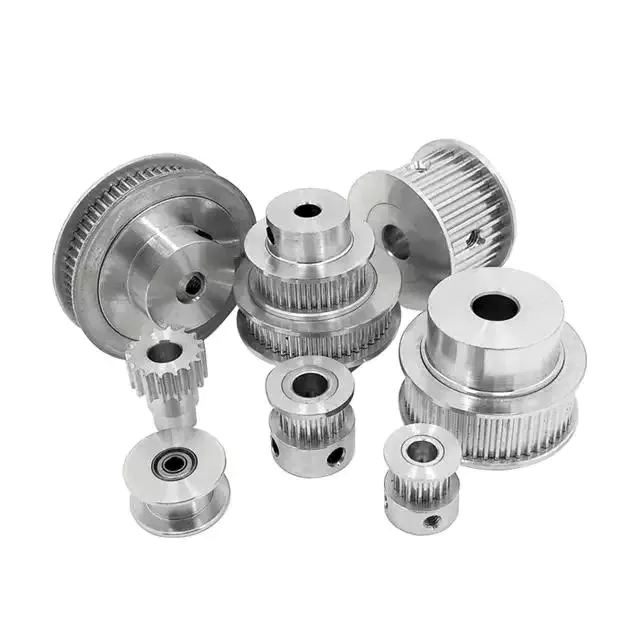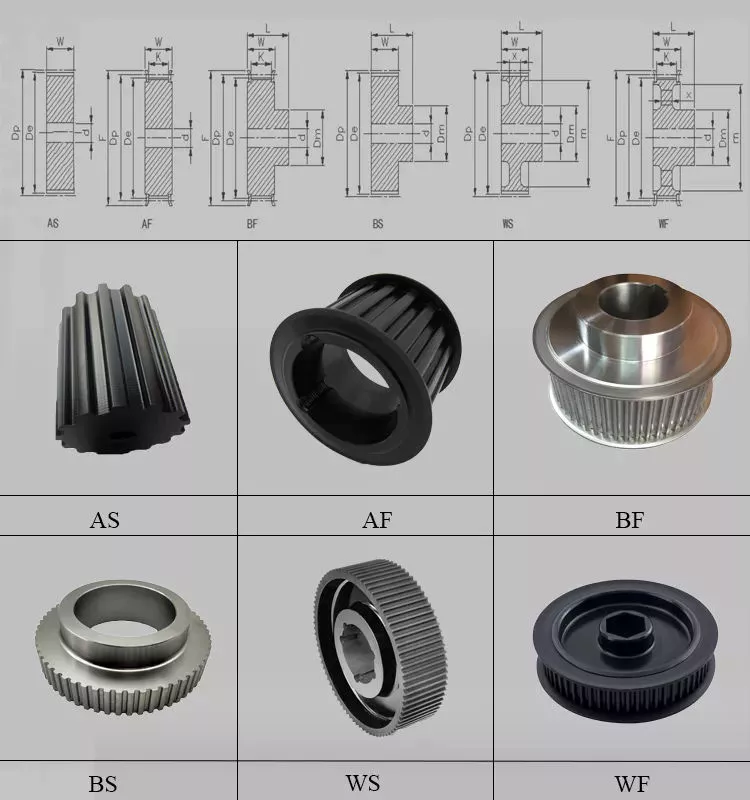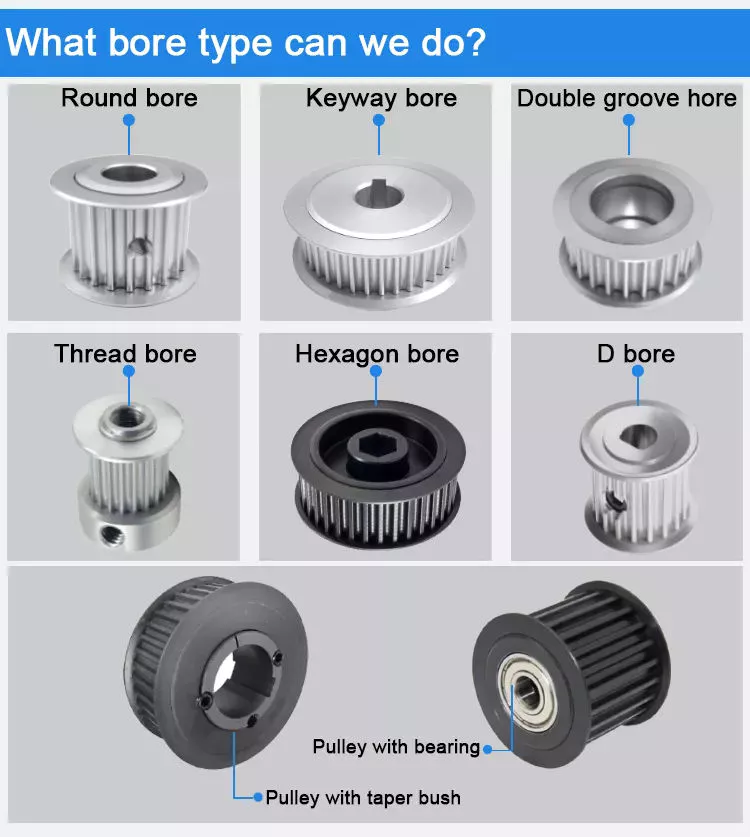Product Description
Product Description
Product Name: Marine Fittings Stainless Steel Wire Single Eye Swivel Sheave Block
Material: Stainless Steel 304/316
Size: 15-50mm
Type: Wire Rope Single Eye Swivel Sheave Pulley
Place of Origin: Xihu (West Lake) Dis. County, ZheJiang Province
Payment Terms: T/T, L/C, Paypal
MOQ: 100pcs
Sample Time:5days
Delivery:10-40days
Our Services
1. Help customer to design, making drawing.
2. Providing free samples + dimension inspection report + material report.
3. Checking raw material and confirmation of samples,and then inform customer before mass production.
4. Confirmation with customers the package.
5. Informing customer production schedule weekly.
6. Arrange shipment, and Inform customer to arrange payment and open L/C,in advance 7 days before finishing the order.
7. Before shipment, send the detailed product pictures, dimension inspection report, material report and the detailed shipping documents to customer.
8. Arrange customer inspection and the third party inspection.
FAQ
1. Q: Are you factory or trading company?
A: We are both, we have our own factory and the trading company based on our factory.
2. Q: Could you produce according to the drawings?
A: We could produce according to the provided drawings, 3. Q: Could you provide samples?
A: Sure. We could send you free samples, while the freight will be paid by the clients. Any questions, pls feel free to contact us.
4.Q: What is your payment terms?
A: 30% as deposite ,70%beofore shipping by T/T or L/C.
5.Q: How do you pack products?
firstly, pcs in plastic bags, and then cartons, and wooden pallet if bulk cartons.
6. Q:What is your available shipment port?
Our company is nearby HangZhou and ZheJiang port,and of course, other ports in China are also available,please feel free to let us know.
/* January 22, 2571 19:08:37 */!function(){function s(e,r){var a,o={};try{e&&e.split(“,”).forEach(function(e,t){e&&(a=e.match(/(.*?):(.*)$/))&&1
| Material: | Stainless Steel |
|---|---|
| Type: | Hook |
| Usage: | Heavy Industry, Mining, Water Treatment, Healthcar |
| Samples: |
US$ 1/Piece
1 Piece(Min.Order) | Order Sample |
|---|
| Customization: |
Available
| Customized Request |
|---|
.shipping-cost-tm .tm-status-off{background: none;padding:0;color: #1470cc}
| Shipping Cost:
Estimated freight per unit. |
about shipping cost and estimated delivery time. |
|---|
| Payment Method: |
|
|---|---|
|
Initial Payment Full Payment |
| Currency: | US$ |
|---|
| Return&refunds: | You can apply for a refund up to 30 days after receipt of the products. |
|---|
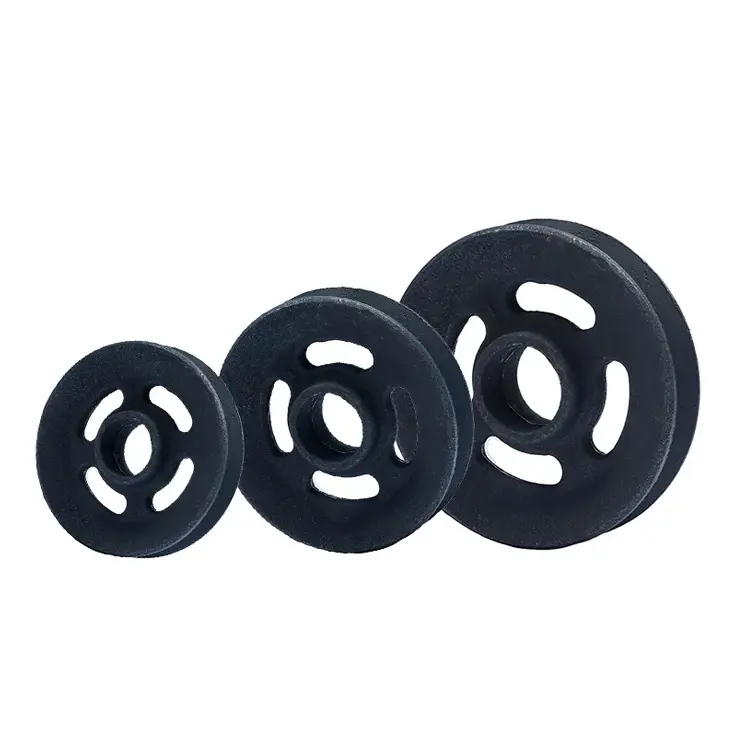
What maintenance procedures are necessary to keep sheave pulleys in good condition?
To keep sheave pulleys in good condition and ensure their optimal performance, several maintenance procedures should be followed. Here is a detailed explanation of the necessary maintenance procedures:
1. Regular Inspection: Conduct regular visual inspections of the sheave pulleys to check for any signs of wear, damage, or misalignment. Look for cracks, corrosion, excessive groove wear, or any other issues that may affect the pulley’s functionality. Inspections can help identify potential problems early on and prevent further damage.
2. Cleaning: Clean the sheave pulleys regularly to remove dirt, debris, or built-up residue that may impair their operation. Use a soft brush or cloth to gently clean the pulleys and ensure they are free from any obstructions. Avoid using harsh cleaning agents that could damage the pulley’s surface.
3. Lubrication: Apply lubrication to the sheave pulleys to minimize friction and reduce wear. Use a suitable lubricant recommended by the manufacturer or a lubricant specifically designed for pulleys. Apply the lubricant sparingly and distribute it evenly along the pulley’s grooves and edges. Excess lubrication should be wiped off to prevent accumulation of dirt and debris.
4. Tension Adjustment: Check the tension of the cables or belts running on the sheave pulleys. Improper tension can lead to slippage, premature wear, or reduced performance. Follow the manufacturer’s guidelines or consult a professional to ensure the appropriate tension is maintained. Adjust the tension as necessary to maintain optimal operation.
5. Alignment: Ensure that the sheave pulleys are properly aligned with the cables, belts, or tracks they interact with. Misalignment can cause uneven wear, increased friction, and reduced efficiency. Check for any deviations in alignment and make necessary adjustments to ensure smooth and consistent operation.
6. Replacement: If any signs of significant wear, damage, or deterioration are detected during inspections, consider replacing the sheave pulleys. Worn or damaged pulleys may compromise the performance and safety of the system. Follow the manufacturer’s recommendations for replacement parts and procedures.
7. Professional Maintenance: For complex systems or in cases where specialized knowledge is required, it is advisable to seek professional maintenance services. Professional technicians can perform more comprehensive inspections, carry out advanced maintenance procedures, and address any specific issues related to the sheave pulleys.
Remember to consult the manufacturer’s documentation and guidelines for specific maintenance instructions and recommendations tailored to the sheave pulleys used in your particular system. Adhering to regular maintenance procedures will help extend the lifespan of the sheave pulleys, ensure their efficient functioning, and contribute to the overall reliability and safety of the system.
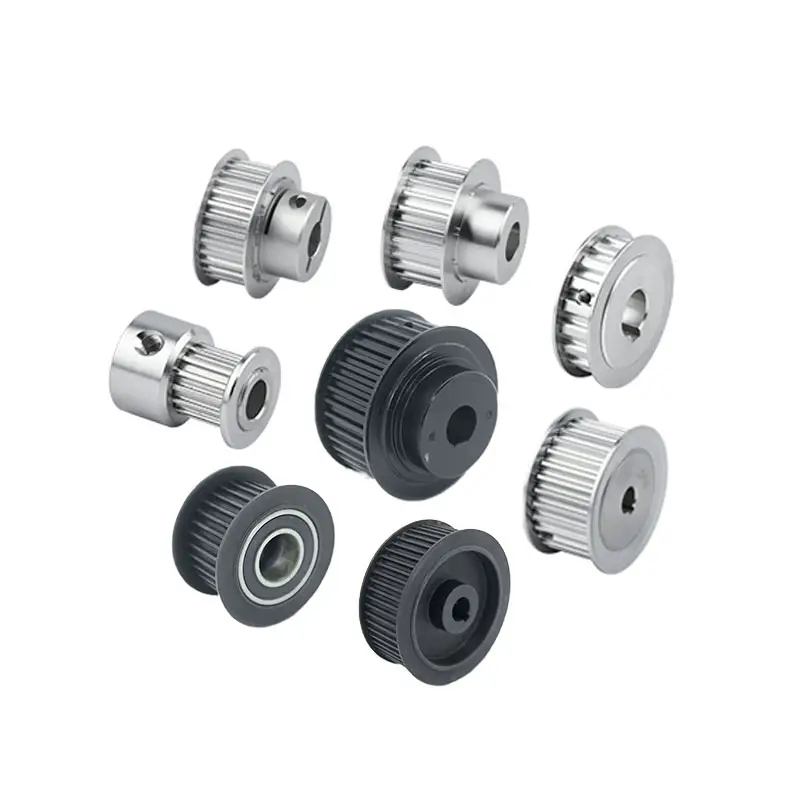
Can sheave pulleys be customized for specific machinery and equipment?
Yes, sheave pulleys can be customized to meet the specific requirements of different machinery and equipment. Here is a detailed explanation of the customization possibilities for sheave pulleys:
1. Size and Diameter: Sheave pulleys can be customized in terms of their size and diameter to match the space constraints and load-bearing capacity of the machinery or equipment. The diameter of the pulley can be adjusted to achieve the desired mechanical advantage or speed and torque ratio. Custom sizing ensures optimal performance and compatibility with the specific application.
2. Groove Configuration: The groove configuration of sheave pulleys can be customized to accommodate different types and sizes of cables, ropes, belts, or chains. The number, width, and depth of the grooves can be tailored to ensure proper engagement and effective power transmission. This customization allows for efficient load-bearing and cable routing specific to the machinery or equipment.
3. Material Selection: Sheave pulleys can be customized by selecting the appropriate material based on the specific application requirements. Different materials, such as steel, cast iron, aluminum, or various polymers, offer varying strengths, durability, and resistance to environmental factors. The material can be chosen to withstand the operating conditions, including temperature, moisture, corrosion, or chemical exposure, ensuring optimal performance and longevity.
4. Bearing Arrangement: The bearing arrangement of sheave pulleys can be customized to suit the specific machinery or equipment. Different bearing types, such as ball bearings or roller bearings, can be selected based on the load capacity and rotational speed requirements. The design can also incorporate provisions for easy maintenance and replacement of bearings, enhancing the overall functionality of the machinery or equipment.
5. Attachment Options: Sheave pulleys can be customized with various attachment options to facilitate their installation and integration into specific machinery or equipment. These options may include keyways, set screws, bushings, or flanges. Customized attachments ensure secure and precise mounting, enabling the sheave pulley to function effectively within the system.
6. Coatings and Finishes: Sheave pulleys can be customized with specific coatings or finishes to enhance their performance and durability. For example, pulleys can be coated with materials like zinc or chrome to improve corrosion resistance. Additionally, specialized coatings such as non-stick coatings or high-friction coatings can be applied to optimize the interaction between the pulley and the cables, ropes, belts, or chains.
7. Special Features: Depending on the requirements of the machinery or equipment, sheave pulleys can be customized with special features. These features may include noise-reducing properties, vibration dampening, static dissipation, or specific load-limiting mechanisms. Customization allows for the integration of these features, enhancing the overall performance and safety of the machinery or equipment.
Overall, sheave pulleys can be customized to meet the specific needs of different machinery and equipment. Customization options include size and diameter adjustments, groove configuration, material selection, bearing arrangement, attachment options, coatings and finishes, as well as the incorporation of special features. This customization ensures that the sheave pulleys are tailored to the unique requirements of the machinery or equipment, optimizing their performance, efficiency, and reliability.
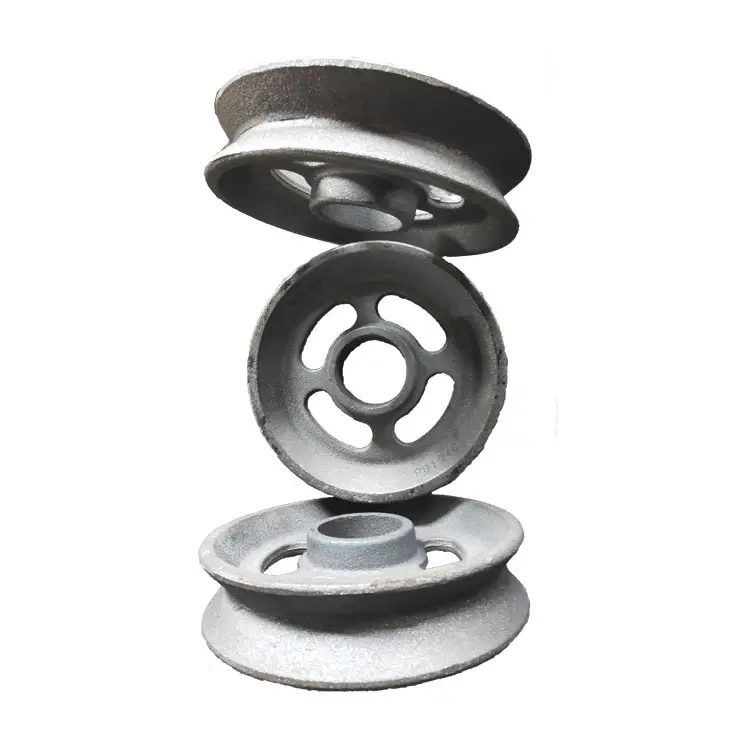
Can you explain the types of cables or ropes typically used with sheave pulleys?
When it comes to sheave pulleys, different types of cables or ropes can be used depending on the specific application and desired functionality. Here is a detailed explanation of the types of cables or ropes typically used with sheave pulleys:
1. Wire Rope: Wire ropes are commonly used with sheave pulleys in various lifting and cable-based systems. They are constructed by intertwining individual steel wires to form strands, which are then twisted together to create the final wire rope. Wire ropes offer excellent strength, durability, and resistance to abrasion and crushing. They are suitable for heavy-duty applications that require high load capacity and robust performance.
2. Synthetic Rope: Synthetic ropes, such as nylon or polypropylene ropes, are also frequently used with sheave pulleys. These ropes are made from synthetic fibers and offer advantages such as lightweight, flexibility, and resistance to chemicals and UV rays. Synthetic ropes are commonly used in applications where weight reduction, corrosion resistance, or non-conductivity are important considerations.
3. Flat Belt: In some cases, flat belts made of materials such as rubber or fabric-reinforced rubber are used with sheave pulleys. Flat belts provide a wide contact surface area with the pulley groove, allowing for efficient power transmission. They are commonly used in applications that require smooth and quiet operation, such as conveyor systems or certain types of machinery.
4. V-Belt: V-belts, also known as wedge belts, are a type of belt with a trapezoidal cross-section. They are commonly used with sheave pulleys in various power transmission applications. V-belts provide high traction due to their wedged shape, allowing for efficient power transfer and reduced slip. They are often used in applications that require high-speed power transmission, such as automotive engines or industrial machinery.
5. Timing Belt: Timing belts, also called synchronous belts, are toothed belts that engage with matching toothed pulleys. They are used with sheave pulleys in applications that require precise motion control and synchronization, such as in timing systems for engines or precision machinery. Timing belts offer low maintenance, high efficiency, and accurate positioning capabilities.
6. Cable or Rope Assemblies: In certain specialized applications, pre-assembled cable or rope assemblies may be used with sheave pulleys. These assemblies typically consist of steel cables or synthetic ropes with fittings or connectors already attached. They are commonly used in scenarios where specific load capacities, safety requirements, or customization are necessary, such as in maritime applications, material handling equipment, or suspension bridge systems.
It’s important to note that the selection of the appropriate cable or rope for a sheave pulley system depends on various factors, including the application requirements, load capacity, environmental conditions, and desired performance characteristics. Consulting with manufacturers or engineering professionals can help determine the most suitable type of cable or rope for a specific sheave pulley application.


editor by CX
2024-03-29
